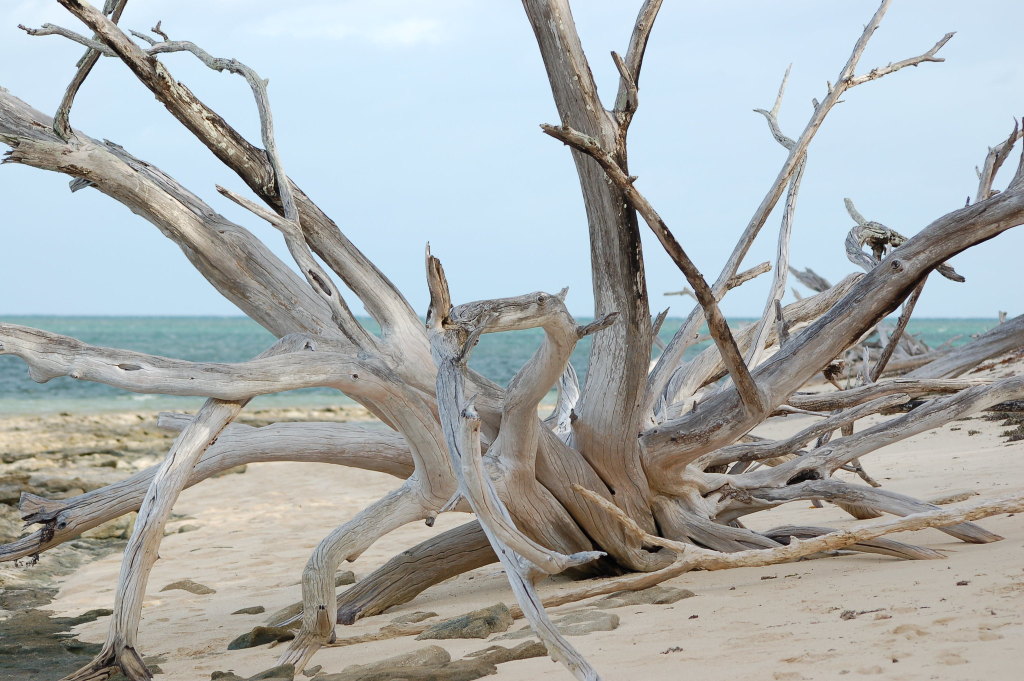Researchers have explored innovative approaches to restore biodiversity in response to the decline of hard substrates in marine ecosystems. The scarcity of natural reefs in soft-bottomed seas due to human activities like overfishing, dredging, and mining has prompted the investigation into alternative solutions. This study, published in Frontiers in Marine Science, examines the effectiveness of using sunken culled fruit trees as artificial reefs to enhance local marine diversity and abundance. The research was conducted in the UNESCO World Heritage Site, the Wadden Sea, the largest tidal flats system globally.

The experiment involved constructing pyramid-like structures from 192 felled pear trees past their economic lifespan. These ‘tree-reefs’ were anchored to the soft sea bottom in the Dutch Wadden Sea. The study revealed that these tree reefs underwent rapid colonization by various sessile organisms within six months. The organisms displayed vertical zonation, with macroalgae and barnacles primarily populating the lower parts of the reef and bryozoans dominating the upper branches. Impressively, the reefs attracted six fish species, whereas control sites without the reefs only hosted two fish species. Fish abundance was significantly higher on the reefs, indicating their appeal as habitats. Notably, the most commonly caught species, the five-bearded rockling, exhibited larger sizes on the reefs, highlighting the potential benefits of this restoration approach for fish growth.

This research introduces the concept of using sunken trees as biodegradable, structurally complex substrates for marine ecosystem restoration. The study’s findings support the swift development of biodiversity hotspots through this method, offering promise for revitalizing soft-sediment marine systems. While the success was evident in the Wadden Sea, the researchers acknowledge the need for further exploration in diverse geographic contexts and over extended timeframes. By providing a cost-effective and environmentally friendly approach to fostering marine life, this research contributes to the broader goals of ecosystem restoration and biodiversity conservation set by global initiatives like the UN Decade on Ecosystem Restoration and the EU Biodiversity Strategy.
References
- Dickson, J., Franken, O., Watson, M. S., Monnich, B., Holthuijsen, S., Eriksson, B. K., Govers, L. L., van der Heide, T., & Bouma, T. J. (2023). Who lives in a pear tree under the sea? A first look at tree reefs as a complex natural biodegradable structure to enhance biodiversity in marine systems. Frontiers in Marine Science, 10. https://www.frontiersin.org/articles/10.3389/fmars.2023.1213790
- Frontiers. (2023, August 25). Culled fruit trees sunk into the Wadden Sea boost local diversity and abundance of marine life. Phys.Org. https://phys.org/news/2023-08-culled-fruit-trees-sunk-wadden.html











